source:
Waterloo Institute for Nanotechnology

1:11:25
Professor Edward Dreizin (20170117)Professor Edward Dreizin - Department of Chemical Engineering, New Jersey Institute of Technology, Newark, NJ, USA - presents a Waterloo Institute for Nanotechnology (WIN) seminar titled: "Mechanoc...
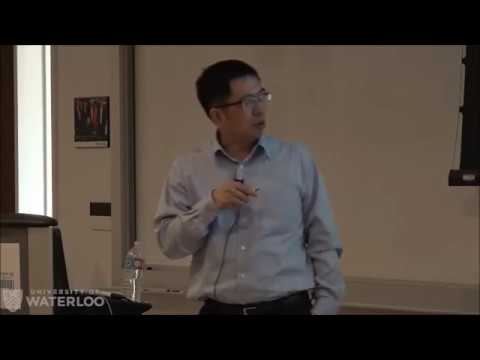
1:01:06
Professor Gang Zheng Professor Gang Zheng - Department of Medical Biophysics, University of Toronto, Ontario, Canada - presents a Waterloo Institute for Nanotechnology (WIN) seminar titled: "Porphysome Nanotechnology: ...
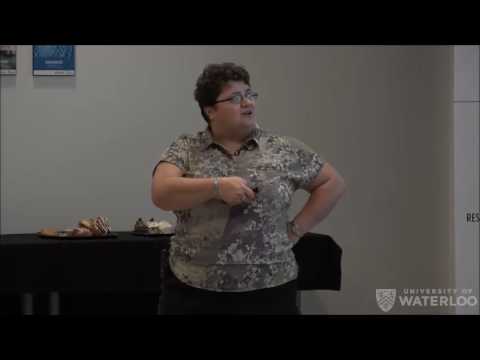
59:03
Professor Ayse Turak Professor Ayse Turak - Department of Engineering Physics, McMaster University, Ontario, Canada - presents a Waterloo Institute for Nanotechnology (WIN) seminar titled: "Solution processed nanoparti...
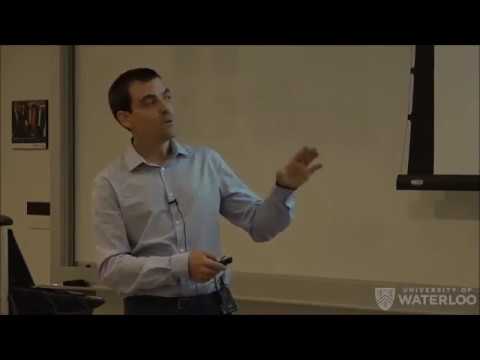
54:34
Dr. David Muñoz-Rojas Dr. David Muñoz-Rojas - Laboratoire des Matériaux et du Génie Physique (LMGP) Université Grenoble Alpes, Grenoble, France - presents a Waterloo Institute for Nanotechnology (WIN) seminar titled: "A...
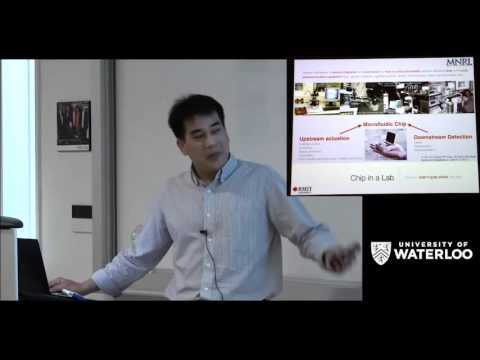
1:01:33
Professor Leslie Yeo Professor Leslie Yeo - Micro/Nanophysics Research Laboratory, School of Engineering, RMIT University, Melbourne, Australia - presents a Waterloo Institute for Nanotechnology (WIN) seminar titled: "...
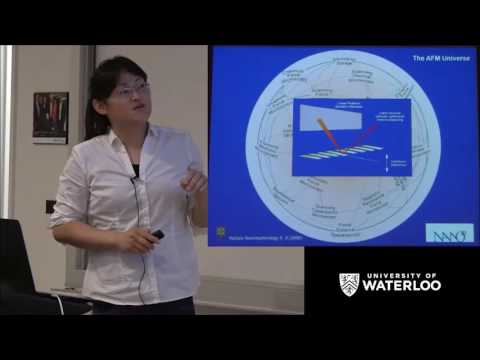
1:03:05
Dr. Genki Yoshikawa Dr. Genki Yoshikawa - International Center for Materials Nanoarchitectonics (WPI-MANA), National Institute for Materials Science (NIMS), Namiki, Tsukuba, Japan - presents a Waterloo Institute for N...
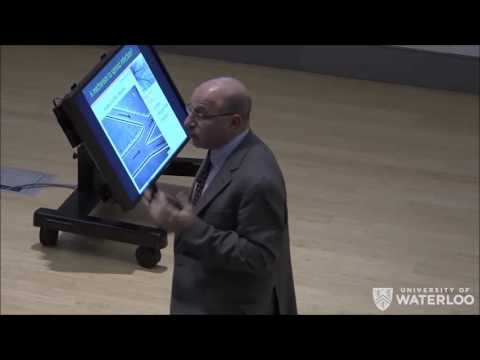
1:05:33
Professor Howard Stone On Sept 7th, 2016, Professor Howard J. Stone, Donald R. Dixon ‘69 and Elizabeth W. Dixon Professor of Mechanical and Aerospace Engineering at Princeton University, United States, delivered a lectur...

1:04:25
Professor Jacob Israelachvili On July 21st 2016, Professor Jacob Israelachvili from the Chemical Engineering Department of the University of California Santa Barbara (UCSB) delivered a lecture on "Adhesion, Friction & Lubricati...

54:56
Professor Feng Yan Professor Feng Yan - College of Chemistry, Soochow University, Suzhou, China - presents a Waterloo Institute for Nanotechnology (WIN) seminar titled: "Poly(ionic liquid) Membranes: Synthesis & Prop...

53:40
Professor Jan Dubowski Professor Jan Dubowski - Canada Research Chair in Quantum Semiconductors, Fellow of the International Society for Optical Engineering, Department of Electrical and Computer Engineering, Universite ...

55:40
Professor Jesse Greener Professor Jesse Greener - Department of Chemistry, Laval University, Quebec - presents a Waterloo Institute for Nanotechnology (WIN) seminar titled "Bacterial Biofilm Research Renaissance by Combin...

47:53
Professor Wojciech Knap Professor Wojciech Knap - Research Director at the Charles Coulomb Laboratory, Montpelllier University and CNRS, France Institute of High Pressure Physics at the Polish Academy of Sciences Warsaw, ...

1:03:45
Dr Alexandre Brolo Dr Alexandre Brolo, Director of the Centre for Advanced Materials and Related Technology (CAMTEC) and Professor of Chemistry at the University of Victoria, Canada, delivered a WIN seminar entitled ...
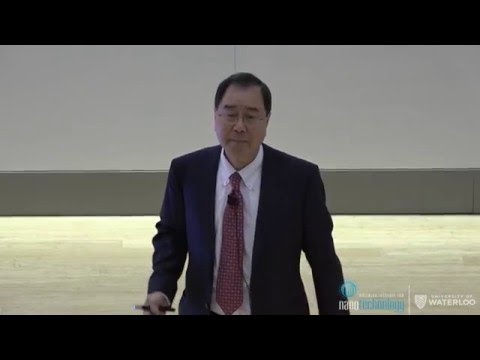
1:03:30
Professor Kang Wang The Waterloo Institute for Nanotechnology (WIN) presents a Distinguished Lecture entitled "Spin-Orbitronics for Energy Efficient Systems" by Professor Kang L. Wang. Wang is a Distinguished Professo...
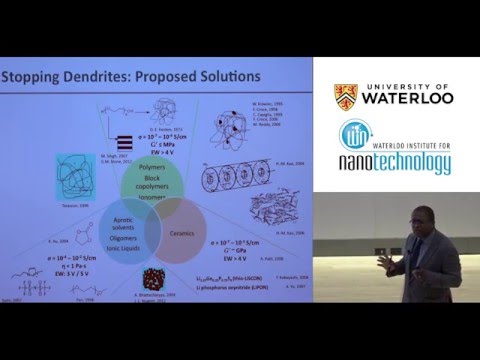
1:14:16
Professor Lynden Archer On April 13, 2016, Professor Lynden Archer, William C. Hooey Director and James A. Friend Family Distinguished Professor of Chemical and Biomolecular Engineering at Cornell University, delivered a ...
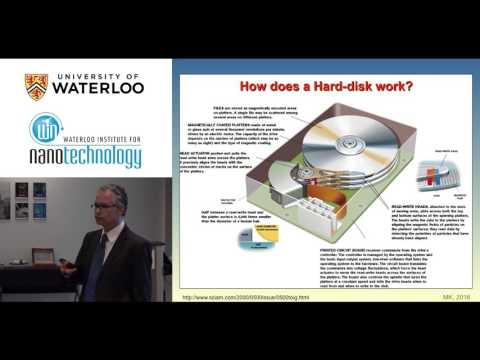
59:50
Marcelo Knobel Professor Marcelo Knobel of the Gleb Wataghin Physics Institute of the University of Campinas (UNICAMP) and Director of the Brazilian National Nanotechnology Laboratory (LNNano), Brazil, delivered ...
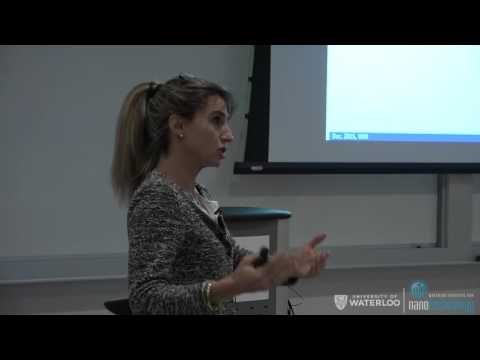
51:50
Dr Carole Rossi Dr Carole Rossi, Research Director of the Laboratoire d'Analyse et d'Architecture des Systèmes (LAAS-CNRS), Université de Toulouse, France, delivered a Waterloo Institute for Nanotechnology (WIN) s...

1:13:09
Professor Robin Rogers On November 19, 2015, Professor Robin D. Rogers, Canada Excellence Research Chair in Green Chemistry and Green Chemicals, and Chemistry Professor at McGill University, Canada, delivered a Waterloo ...

59:29
Dr Ismael Diez-Perez Dr Ismael Diez-Perez, Ramon & Cajal Research Professor in Physical Chemistry at the University of Barcelona, and Senior Researcher at the Institute of Bioengineering of Catalonia (IBEC), Spain, del...

55:21
Dr Antal Jakli Dr Antal Jakli, Professor at the Liquid Crystal Institute and Department of Chemical Physics at Kent State University delivered a Waterloo Institute for Nanotechnology (WIN) seminar entitled "Compl...

57:03
Dr Joanna Millunchick Dr. Joanna Millunchick, Professor of Materials Science and Engineering, and Academic Director of MSTEM Academy in Engineering at the University of Michigan, delivered a WIN seminar entitled "Atomic...

57:18
Dr Carlos Cesar Bof Bufon Dr Carlos Cesar Bof Bufon, Head of the Laboratory of Functional Devices and Systems at the Brazilian Nanotechnology National Laboratory (LNNano) delivered a WIN seminar entitled "Hybrid Organic/Ino...

50:42
Dr Wen Jung Li Dr Wen Jung Li, Chair Professor of Biomedical Engineering at Department of Mechanical and Biomedical Engineering at the City University of Hong Kong, delivered a WIN seminar entitled "Optically-Ind...

1:05:44
Dr Christoph Deneke Dr. Christoph Deneke, Scientific Head at the Laboratory for Surface Science, Brazilian Nanotechnology National Laboratory (LNNano)/CNPEM, Brazil, delivered a WIN seminar entitled "Nanometer Thick M...

1:11:37
Dr David Zhitomirsky Dr David Zhitomirsky, Postdoctoral Associate at the Massachusetts Institute of Technology (MIT), United States, delivered a WIN seminar entitled "Surface Engineering of Colloidal Quantum Dots for E...
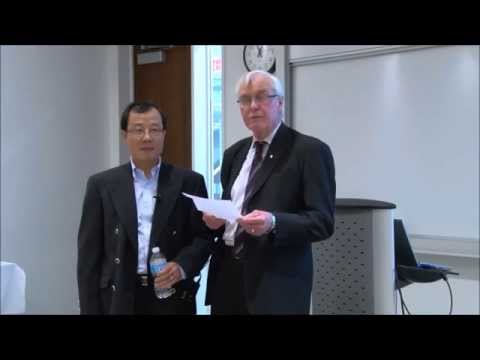
1:02:11
Dr Guojun Liu Dr Guojun Liu, Canada Research Chair in Materials Science, and Professor at Queen's University delivered a WIN seminar entitled "Designer Nano- and Micro-Architectural Materials for Block Copolymer...

1:07:16
Dr Chien-Lung Wang Dr Chien-Lung Wang of National Chiao Tung University (NCTU), Taiwan, delivered a WIN seminar entitled "The Role of Aromatic Structural Units of Conjugated Copolymers in Reaching High Solid-State Or...
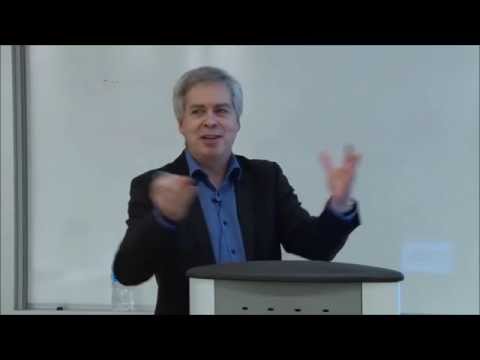
1:04:22
Dr Mario Leclerc (20150130 ) Dr Mario Leclerc, Canada Research Chair in Electroactive and Photoactive Polymers, and Professor at Université Laval, Canada, delivered a WIN seminar entitled "New Polymerization Methods for Plasti...
 1:11:25 Professor Edward Dreizin (20170117)Professor Edward Dreizin - Department of Chemical Engineering, New Jersey Institute of Technology, Newark, NJ, USA - presents a Waterloo Institute for Nanotechnology (WIN) seminar titled: "Mechanoc...
1:11:25 Professor Edward Dreizin (20170117)Professor Edward Dreizin - Department of Chemical Engineering, New Jersey Institute of Technology, Newark, NJ, USA - presents a Waterloo Institute for Nanotechnology (WIN) seminar titled: "Mechanoc... 1:01:06 Professor Gang Zheng Professor Gang Zheng - Department of Medical Biophysics, University of Toronto, Ontario, Canada - presents a Waterloo Institute for Nanotechnology (WIN) seminar titled: "Porphysome Nanotechnology: ...
1:01:06 Professor Gang Zheng Professor Gang Zheng - Department of Medical Biophysics, University of Toronto, Ontario, Canada - presents a Waterloo Institute for Nanotechnology (WIN) seminar titled: "Porphysome Nanotechnology: ... 59:03 Professor Ayse Turak Professor Ayse Turak - Department of Engineering Physics, McMaster University, Ontario, Canada - presents a Waterloo Institute for Nanotechnology (WIN) seminar titled: "Solution processed nanoparti...
59:03 Professor Ayse Turak Professor Ayse Turak - Department of Engineering Physics, McMaster University, Ontario, Canada - presents a Waterloo Institute for Nanotechnology (WIN) seminar titled: "Solution processed nanoparti... 54:34 Dr. David Muñoz-Rojas Dr. David Muñoz-Rojas - Laboratoire des Matériaux et du Génie Physique (LMGP) Université Grenoble Alpes, Grenoble, France - presents a Waterloo Institute for Nanotechnology (WIN) seminar titled: "A...
54:34 Dr. David Muñoz-Rojas Dr. David Muñoz-Rojas - Laboratoire des Matériaux et du Génie Physique (LMGP) Université Grenoble Alpes, Grenoble, France - presents a Waterloo Institute for Nanotechnology (WIN) seminar titled: "A... 1:01:33 Professor Leslie Yeo Professor Leslie Yeo - Micro/Nanophysics Research Laboratory, School of Engineering, RMIT University, Melbourne, Australia - presents a Waterloo Institute for Nanotechnology (WIN) seminar titled: "...
1:01:33 Professor Leslie Yeo Professor Leslie Yeo - Micro/Nanophysics Research Laboratory, School of Engineering, RMIT University, Melbourne, Australia - presents a Waterloo Institute for Nanotechnology (WIN) seminar titled: "... 1:03:05 Dr. Genki Yoshikawa Dr. Genki Yoshikawa - International Center for Materials Nanoarchitectonics (WPI-MANA), National Institute for Materials Science (NIMS), Namiki, Tsukuba, Japan - presents a Waterloo Institute for N...
1:03:05 Dr. Genki Yoshikawa Dr. Genki Yoshikawa - International Center for Materials Nanoarchitectonics (WPI-MANA), National Institute for Materials Science (NIMS), Namiki, Tsukuba, Japan - presents a Waterloo Institute for N... 1:05:33 Professor Howard Stone On Sept 7th, 2016, Professor Howard J. Stone, Donald R. Dixon ‘69 and Elizabeth W. Dixon Professor of Mechanical and Aerospace Engineering at Princeton University, United States, delivered a lectur...
1:05:33 Professor Howard Stone On Sept 7th, 2016, Professor Howard J. Stone, Donald R. Dixon ‘69 and Elizabeth W. Dixon Professor of Mechanical and Aerospace Engineering at Princeton University, United States, delivered a lectur... 1:04:25 Professor Jacob Israelachvili On July 21st 2016, Professor Jacob Israelachvili from the Chemical Engineering Department of the University of California Santa Barbara (UCSB) delivered a lecture on "Adhesion, Friction & Lubricati...
1:04:25 Professor Jacob Israelachvili On July 21st 2016, Professor Jacob Israelachvili from the Chemical Engineering Department of the University of California Santa Barbara (UCSB) delivered a lecture on "Adhesion, Friction & Lubricati... 54:56 Professor Feng Yan Professor Feng Yan - College of Chemistry, Soochow University, Suzhou, China - presents a Waterloo Institute for Nanotechnology (WIN) seminar titled: "Poly(ionic liquid) Membranes: Synthesis & Prop...
54:56 Professor Feng Yan Professor Feng Yan - College of Chemistry, Soochow University, Suzhou, China - presents a Waterloo Institute for Nanotechnology (WIN) seminar titled: "Poly(ionic liquid) Membranes: Synthesis & Prop... 53:40 Professor Jan Dubowski Professor Jan Dubowski - Canada Research Chair in Quantum Semiconductors, Fellow of the International Society for Optical Engineering, Department of Electrical and Computer Engineering, Universite ...
53:40 Professor Jan Dubowski Professor Jan Dubowski - Canada Research Chair in Quantum Semiconductors, Fellow of the International Society for Optical Engineering, Department of Electrical and Computer Engineering, Universite ... 55:40 Professor Jesse Greener Professor Jesse Greener - Department of Chemistry, Laval University, Quebec - presents a Waterloo Institute for Nanotechnology (WIN) seminar titled "Bacterial Biofilm Research Renaissance by Combin...
55:40 Professor Jesse Greener Professor Jesse Greener - Department of Chemistry, Laval University, Quebec - presents a Waterloo Institute for Nanotechnology (WIN) seminar titled "Bacterial Biofilm Research Renaissance by Combin... 47:53 Professor Wojciech Knap Professor Wojciech Knap - Research Director at the Charles Coulomb Laboratory, Montpelllier University and CNRS, France Institute of High Pressure Physics at the Polish Academy of Sciences Warsaw, ...
47:53 Professor Wojciech Knap Professor Wojciech Knap - Research Director at the Charles Coulomb Laboratory, Montpelllier University and CNRS, France Institute of High Pressure Physics at the Polish Academy of Sciences Warsaw, ... 1:03:45 Dr Alexandre Brolo Dr Alexandre Brolo, Director of the Centre for Advanced Materials and Related Technology (CAMTEC) and Professor of Chemistry at the University of Victoria, Canada, delivered a WIN seminar entitled ...
1:03:45 Dr Alexandre Brolo Dr Alexandre Brolo, Director of the Centre for Advanced Materials and Related Technology (CAMTEC) and Professor of Chemistry at the University of Victoria, Canada, delivered a WIN seminar entitled ... 1:03:30 Professor Kang Wang The Waterloo Institute for Nanotechnology (WIN) presents a Distinguished Lecture entitled "Spin-Orbitronics for Energy Efficient Systems" by Professor Kang L. Wang. Wang is a Distinguished Professo...
1:03:30 Professor Kang Wang The Waterloo Institute for Nanotechnology (WIN) presents a Distinguished Lecture entitled "Spin-Orbitronics for Energy Efficient Systems" by Professor Kang L. Wang. Wang is a Distinguished Professo... 1:14:16 Professor Lynden Archer On April 13, 2016, Professor Lynden Archer, William C. Hooey Director and James A. Friend Family Distinguished Professor of Chemical and Biomolecular Engineering at Cornell University, delivered a ...
1:14:16 Professor Lynden Archer On April 13, 2016, Professor Lynden Archer, William C. Hooey Director and James A. Friend Family Distinguished Professor of Chemical and Biomolecular Engineering at Cornell University, delivered a ... 59:50 Marcelo Knobel Professor Marcelo Knobel of the Gleb Wataghin Physics Institute of the University of Campinas (UNICAMP) and Director of the Brazilian National Nanotechnology Laboratory (LNNano), Brazil, delivered ...
59:50 Marcelo Knobel Professor Marcelo Knobel of the Gleb Wataghin Physics Institute of the University of Campinas (UNICAMP) and Director of the Brazilian National Nanotechnology Laboratory (LNNano), Brazil, delivered ... 51:50 Dr Carole Rossi Dr Carole Rossi, Research Director of the Laboratoire d'Analyse et d'Architecture des Systèmes (LAAS-CNRS), Université de Toulouse, France, delivered a Waterloo Institute for Nanotechnology (WIN) s...
51:50 Dr Carole Rossi Dr Carole Rossi, Research Director of the Laboratoire d'Analyse et d'Architecture des Systèmes (LAAS-CNRS), Université de Toulouse, France, delivered a Waterloo Institute for Nanotechnology (WIN) s... 1:13:09 Professor Robin Rogers On November 19, 2015, Professor Robin D. Rogers, Canada Excellence Research Chair in Green Chemistry and Green Chemicals, and Chemistry Professor at McGill University, Canada, delivered a Waterloo ...
1:13:09 Professor Robin Rogers On November 19, 2015, Professor Robin D. Rogers, Canada Excellence Research Chair in Green Chemistry and Green Chemicals, and Chemistry Professor at McGill University, Canada, delivered a Waterloo ... 59:29 Dr Ismael Diez-Perez Dr Ismael Diez-Perez, Ramon & Cajal Research Professor in Physical Chemistry at the University of Barcelona, and Senior Researcher at the Institute of Bioengineering of Catalonia (IBEC), Spain, del...
59:29 Dr Ismael Diez-Perez Dr Ismael Diez-Perez, Ramon & Cajal Research Professor in Physical Chemistry at the University of Barcelona, and Senior Researcher at the Institute of Bioengineering of Catalonia (IBEC), Spain, del... 55:21 Dr Antal Jakli Dr Antal Jakli, Professor at the Liquid Crystal Institute and Department of Chemical Physics at Kent State University delivered a Waterloo Institute for Nanotechnology (WIN) seminar entitled "Compl...
55:21 Dr Antal Jakli Dr Antal Jakli, Professor at the Liquid Crystal Institute and Department of Chemical Physics at Kent State University delivered a Waterloo Institute for Nanotechnology (WIN) seminar entitled "Compl... 57:03 Dr Joanna Millunchick Dr. Joanna Millunchick, Professor of Materials Science and Engineering, and Academic Director of MSTEM Academy in Engineering at the University of Michigan, delivered a WIN seminar entitled "Atomic...
57:03 Dr Joanna Millunchick Dr. Joanna Millunchick, Professor of Materials Science and Engineering, and Academic Director of MSTEM Academy in Engineering at the University of Michigan, delivered a WIN seminar entitled "Atomic... 57:18 Dr Carlos Cesar Bof Bufon Dr Carlos Cesar Bof Bufon, Head of the Laboratory of Functional Devices and Systems at the Brazilian Nanotechnology National Laboratory (LNNano) delivered a WIN seminar entitled "Hybrid Organic/Ino...
57:18 Dr Carlos Cesar Bof Bufon Dr Carlos Cesar Bof Bufon, Head of the Laboratory of Functional Devices and Systems at the Brazilian Nanotechnology National Laboratory (LNNano) delivered a WIN seminar entitled "Hybrid Organic/Ino... 50:42 Dr Wen Jung Li Dr Wen Jung Li, Chair Professor of Biomedical Engineering at Department of Mechanical and Biomedical Engineering at the City University of Hong Kong, delivered a WIN seminar entitled "Optically-Ind...
50:42 Dr Wen Jung Li Dr Wen Jung Li, Chair Professor of Biomedical Engineering at Department of Mechanical and Biomedical Engineering at the City University of Hong Kong, delivered a WIN seminar entitled "Optically-Ind... 1:05:44 Dr Christoph Deneke Dr. Christoph Deneke, Scientific Head at the Laboratory for Surface Science, Brazilian Nanotechnology National Laboratory (LNNano)/CNPEM, Brazil, delivered a WIN seminar entitled "Nanometer Thick M...
1:05:44 Dr Christoph Deneke Dr. Christoph Deneke, Scientific Head at the Laboratory for Surface Science, Brazilian Nanotechnology National Laboratory (LNNano)/CNPEM, Brazil, delivered a WIN seminar entitled "Nanometer Thick M... 1:11:37 Dr David Zhitomirsky Dr David Zhitomirsky, Postdoctoral Associate at the Massachusetts Institute of Technology (MIT), United States, delivered a WIN seminar entitled "Surface Engineering of Colloidal Quantum Dots for E...
1:11:37 Dr David Zhitomirsky Dr David Zhitomirsky, Postdoctoral Associate at the Massachusetts Institute of Technology (MIT), United States, delivered a WIN seminar entitled "Surface Engineering of Colloidal Quantum Dots for E... 1:02:11 Dr Guojun Liu Dr Guojun Liu, Canada Research Chair in Materials Science, and Professor at Queen's University delivered a WIN seminar entitled "Designer Nano- and Micro-Architectural Materials for Block Copolymer...
1:02:11 Dr Guojun Liu Dr Guojun Liu, Canada Research Chair in Materials Science, and Professor at Queen's University delivered a WIN seminar entitled "Designer Nano- and Micro-Architectural Materials for Block Copolymer... 1:07:16 Dr Chien-Lung Wang Dr Chien-Lung Wang of National Chiao Tung University (NCTU), Taiwan, delivered a WIN seminar entitled "The Role of Aromatic Structural Units of Conjugated Copolymers in Reaching High Solid-State Or...
1:07:16 Dr Chien-Lung Wang Dr Chien-Lung Wang of National Chiao Tung University (NCTU), Taiwan, delivered a WIN seminar entitled "The Role of Aromatic Structural Units of Conjugated Copolymers in Reaching High Solid-State Or... 1:04:22 Dr Mario Leclerc (20150130 ) Dr Mario Leclerc, Canada Research Chair in Electroactive and Photoactive Polymers, and Professor at Université Laval, Canada, delivered a WIN seminar entitled "New Polymerization Methods for Plasti...
1:04:22 Dr Mario Leclerc (20150130 ) Dr Mario Leclerc, Canada Research Chair in Electroactive and Photoactive Polymers, and Professor at Université Laval, Canada, delivered a WIN seminar entitled "New Polymerization Methods for Plasti...